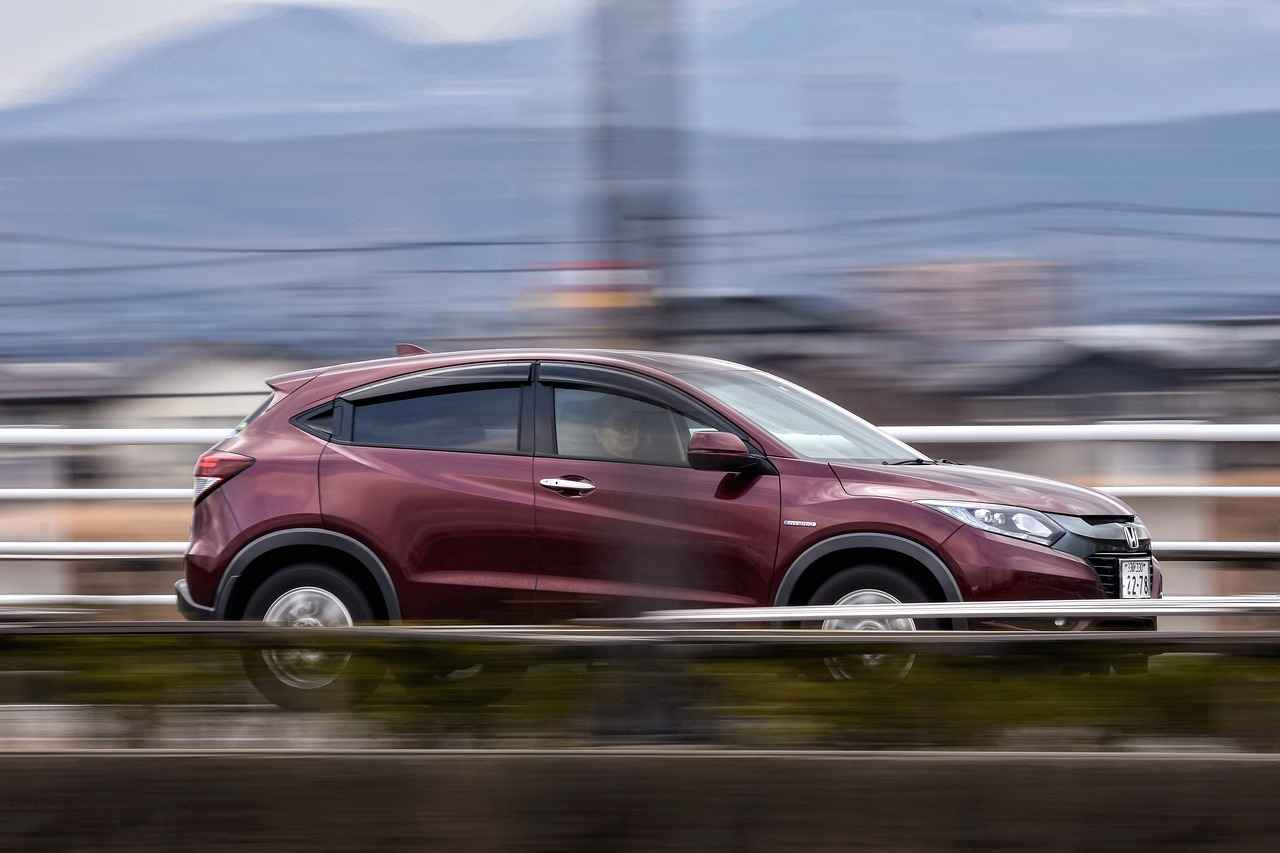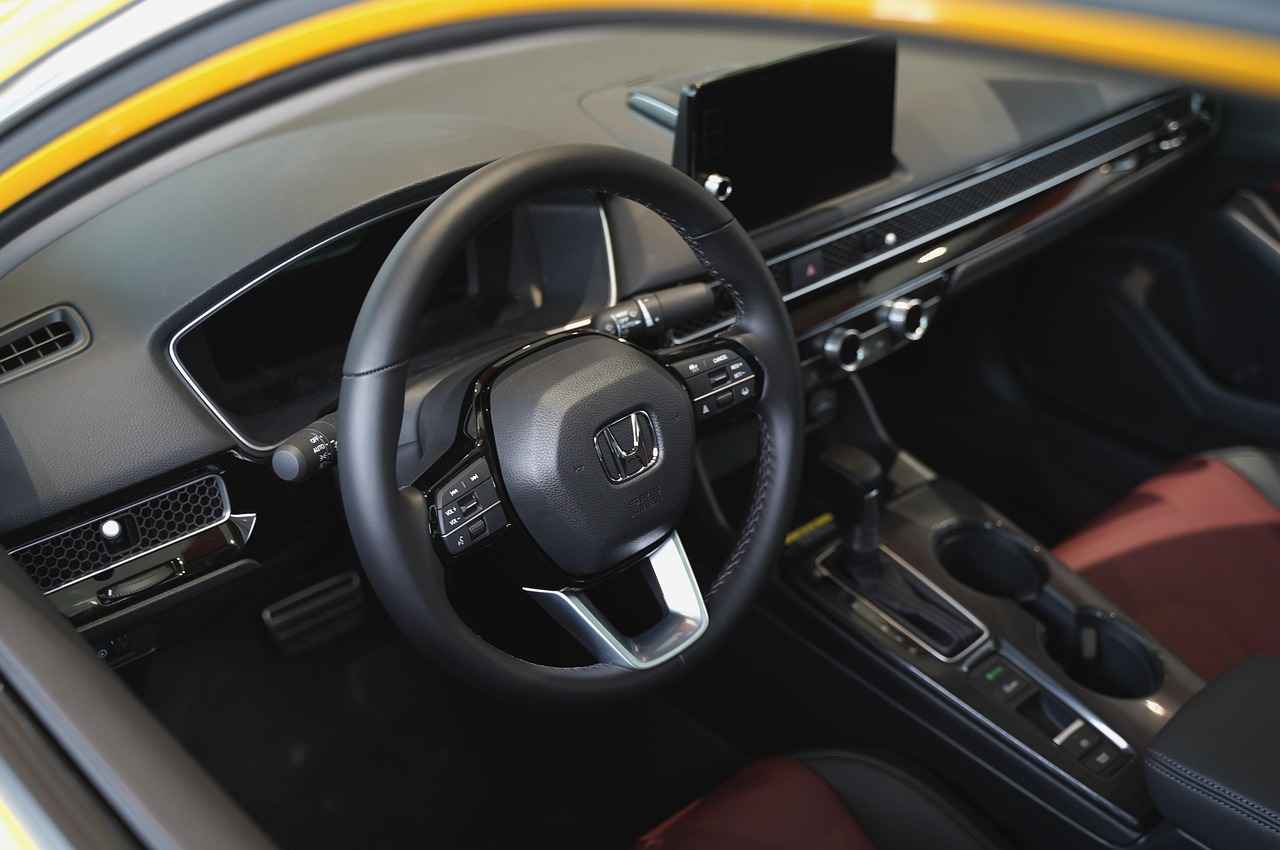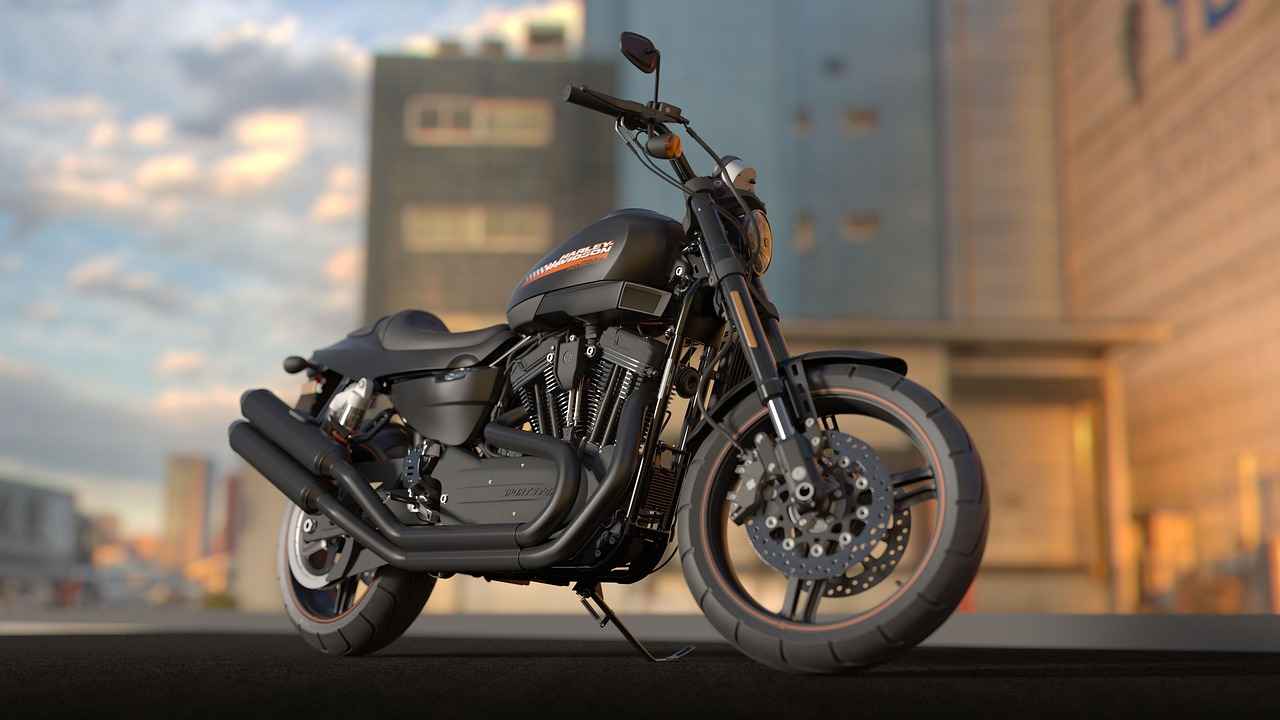The Honda Accord has long been a popular choice among midsize sedans, known for its reliability, performance, and comfort. One question that often arises among potential buyers is whether the Honda Accord features all-wheel drive (AWD) capabilities. This article delves into the specifications, performance, and comparisons with other vehicles in its class to provide a comprehensive overview.
All-wheel drive (AWD) is a drivetrain system that delivers power to all four wheels of a vehicle. This feature enhances traction and stability, particularly in adverse weather conditions such as rain, snow, or ice. AWD systems are designed to automatically distribute power between the front and rear wheels, allowing for improved handling and control.
Traditionally, the Honda Accord has been known for its front-wheel drive configuration. However, recent models have sparked interest regarding the potential introduction of AWD options. As of the latest models, the Accord remains predominantly front-wheel drive, but it’s essential to check specific trims and updates from Honda that may introduce AWD capabilities.
While the standard Honda Accord models do not include AWD, there have been discussions about future iterations possibly incorporating this feature. It is crucial for consumers to stay informed about updates from Honda, as the automotive industry continually evolves to meet consumer demand.
AWD systems can significantly enhance a vehicle’s handling and performance, especially in challenging driving conditions. By distributing power to all four wheels, AWD improves traction, allowing for better acceleration and cornering stability. This can be particularly beneficial for drivers in regions with severe weather or rough terrain.
When comparing the Honda Accord to competitors that offer AWD, such as the Toyota Camry or Subaru Legacy, it’s evident that AWD can be a deciding factor for many buyers. These vehicles provide enhanced stability and control, making them more appealing to those who prioritize safety and performance in various driving conditions.
One of the critical considerations for buyers is the difference in fuel efficiency between all-wheel drive and front-wheel drive. Generally, AWD systems can lead to decreased fuel economy due to the added weight and complexity of the drivetrain. Potential buyers should weigh the benefits of improved traction against the potential increase in fuel costs.
Understanding consumer preferences for AWD versus front-wheel drive is vital in today’s market. Many consumers prioritize safety and performance, especially in regions with harsh weather conditions. Surveys indicate a growing trend towards vehicles with AWD capabilities, influencing manufacturers to adapt their offerings accordingly.
AWD can contribute to enhanced safety features in vehicles. By providing better traction and stability, AWD systems can help prevent accidents in slippery conditions. Analyzing how AWD impacts safety ratings can be crucial for informed decisions when purchasing a vehicle like the Honda Accord.
The cost of ownership, including the initial purchase price and maintenance, can vary significantly between AWD and FWD vehicles. Typically, AWD models come with a higher price tag and may incur additional maintenance costs. Understanding these financial implications is essential for potential buyers considering a Honda Accord.
Exploring consumer reviews and testimonials regarding AWD in the Honda Accord can provide valuable insights into real-world experiences. Many drivers appreciate the added control and confidence that AWD provides, especially during inclement weather. However, some may express concerns about fuel efficiency and cost.
As automotive technology evolves, the future of AWD in the Honda Accord may change. With increasing consumer demand for AWD vehicles, Honda may consider expanding its offerings in upcoming models. Keeping an eye on industry trends and manufacturer announcements will be crucial for prospective buyers.
In summary, while the Honda Accord has not traditionally offered AWD, the ongoing discussions about consumer preferences and industry trends may shape its future offerings. Understanding the implications of AWD versus FWD can help buyers make informed decisions.

What is All-Wheel Drive (AWD)?
All-Wheel Drive (AWD) is a sophisticated drivetrain system designed to enhance a vehicle’s performance by distributing power to all four wheels. This capability significantly improves traction and stability, particularly in challenging driving conditions such as rain, snow, or off-road terrains. Unlike traditional two-wheel drive systems that power only the front or rear wheels, AWD ensures that all wheels receive power, which can be crucial for maintaining control and maneuverability.
AWD systems can be classified into two main types: full-time AWD and part-time AWD. Full-time systems provide power to all wheels at all times, automatically adjusting the power distribution based on traction needs. In contrast, part-time systems primarily operate in two-wheel drive mode but can engage all four wheels when necessary. This flexibility allows for improved fuel efficiency while still offering enhanced performance when needed.
One of the primary benefits of AWD is its ability to enhance vehicle handling. By distributing power to all wheels, AWD helps to mitigate the risk of wheel slip, especially when accelerating or navigating turns. This results in a more confident driving experience, particularly in adverse weather conditions. For instance, during heavy rain or snowfall, an AWD vehicle can maintain better grip on the road, reducing the likelihood of skidding or losing control.
Moreover, AWD systems are often equipped with advanced technologies such as torque vectoring, which allows for precise control over how much power is sent to each wheel. This technology can be particularly beneficial in high-performance vehicles, enhancing cornering capabilities and overall agility.
While AWD offers numerous advantages, it is essential to consider its impact on fuel efficiency. Vehicles equipped with AWD may experience a slight decrease in fuel economy compared to their two-wheel drive counterparts due to the added weight and complexity of the drivetrain. However, advancements in technology are continually improving the efficiency of AWD systems, making them more competitive in this regard.
In summary, All-Wheel Drive is a valuable feature for drivers seeking enhanced performance and safety in various driving conditions. Its ability to provide power to all four wheels not only improves traction and stability but also contributes to a more enjoyable driving experience. As automotive technology continues to evolve, the benefits of AWD are becoming increasingly accessible, making it a popular choice among consumers.

Does Honda Accord Offer AWD?
The Honda Accord has long been celebrated for its reliability, comfort, and performance, primarily featuring a front-wheel drive (FWD) configuration. However, with the growing demand for all-wheel drive (AWD) options in sedans, many potential buyers are left wondering: Does the Honda Accord offer AWD? This article delves into the current offerings of the Honda Accord, exploring its drivetrain options, performance capabilities, and how it stacks up against competitors.
All-wheel drive is a drivetrain system that distributes power to all four wheels of a vehicle, enhancing traction and stability. This feature is particularly beneficial in adverse weather conditions, such as rain, snow, or off-road scenarios. Drivers seeking improved handling and performance often prefer AWD vehicles for their ability to maintain grip and control.
Traditionally, the Honda Accord has been known for its front-wheel drive configuration, which provides excellent fuel efficiency and handling. However, recent models have sparked interest among consumers regarding the availability of AWD options. While the standard models continue to feature FWD, some trims may now offer AWD as an option, catering to the evolving needs of drivers.
As of the latest model year, Honda has introduced AWD options in select trims of the Accord lineup. This move aligns with industry trends where consumers are increasingly seeking vehicles that can handle diverse driving conditions. The AWD system enhances the vehicle’s capability, making it a more attractive choice for those living in regions with harsh winter weather or challenging terrains.
AWD systems can significantly enhance a vehicle’s handling and performance, especially in challenging driving conditions. By distributing power to all four wheels, AWD provides better traction, which can lead to improved acceleration and cornering stability. This is particularly advantageous when navigating slick roads or uneven surfaces, making the driving experience safer and more enjoyable.
When comparing the Honda Accord to its competitors, the presence of AWD can be a decisive factor for many buyers. Vehicles like the Subaru Legacy and Toyota Camry offer AWD as a standard feature in their respective lineups. Understanding how the Honda Accord’s AWD capabilities measure up against these competitors can provide valuable insights into its market positioning and overall performance capabilities.
One of the critical considerations for buyers is the fuel efficiency differences between AWD and FWD configurations. Generally, AWD vehicles tend to consume more fuel due to the additional components and weight associated with the system. Potential buyers should weigh the benefits of enhanced traction against the potential increase in fuel costs, particularly if they prioritize efficiency in their driving habits.
Consumer preferences have shifted in recent years, with many drivers now favoring AWD for its added security and performance benefits. Understanding these trends can shed light on the potential demand for AWD options in the Honda Accord. As more consumers prioritize safety and versatility, Honda’s decision to offer AWD may resonate positively with its target audience.
AWD can contribute to enhanced safety features in vehicles. By improving traction and stability, AWD systems can help prevent accidents in adverse weather conditions. Analyzing how AWD impacts the safety ratings of the Honda Accord is essential for informed decisions, especially for families or individuals who frequently drive in challenging conditions.
The cost of ownership can vary significantly between AWD and FWD vehicles. Initial purchase prices, maintenance costs, and insurance premiums may differ based on the drivetrain configuration. This section discusses the financial aspects of choosing a Honda Accord with AWD versus the traditional FWD, helping potential buyers make informed choices.
Exploring consumer reviews and testimonials regarding AWD in the Honda Accord can provide valuable insights into real-world experiences and satisfaction levels. Many drivers appreciate the added confidence that comes with AWD, particularly in regions with unpredictable weather. Gathering feedback from current owners can help prospective buyers gauge the overall value of this feature.
With evolving automotive technologies and shifting consumer demands, the future of AWD in the Honda Accord may change. Honda is likely to continue innovating and adapting its offerings to meet the needs of modern drivers. Anticipating potential developments and innovations in upcoming models can provide insights into the long-term viability of AWD in the Accord lineup.
In summary, while the Honda Accord has predominantly featured front-wheel drive, the introduction of AWD options in recent models reflects the brand’s commitment to meeting consumer demands. As the automotive landscape continues to evolve, the Honda Accord’s AWD capabilities could position it favorably among its competitors.

Honda Accord Models with AWD
The Honda Accord has long been celebrated for its reliability, comfort, and fuel efficiency. Traditionally, this sedan has been equipped with a front-wheel drive (FWD) system, which has been sufficient for most driving conditions. However, recent advancements in automotive technology have led to a shift in consumer preferences, prompting Honda to explore the addition of all-wheel drive (AWD) options in select models.
While the Honda Accord has not historically been known for offering AWD, the latest iterations may include this feature in specific trims. This development is particularly noteworthy as it aligns with a growing trend among car manufacturers to cater to drivers seeking enhanced traction and stability.
In recent years, Honda has introduced new technologies and engineering solutions that allow for the integration of AWD in their lineup. For instance, the AWD system can significantly improve the vehicle’s performance in adverse weather conditions, such as rain or snow, providing drivers with a safer and more confident driving experience.
- Enhanced Traction: AWD systems distribute power to all four wheels, allowing for better grip on slippery surfaces.
- Improved Handling: With power being sent to all wheels, the handling and cornering capabilities of the Accord are enhanced, especially on winding roads.
- Increased Stability: AWD contributes to a more stable driving experience, reducing the likelihood of skidding or losing control.
As of now, specific trims of the Honda Accord, such as the Accord Sport and Accord Touring, may be equipped with AWD, providing consumers with more options than ever before. This addition not only broadens the appeal of the Accord but also places it in direct competition with other sedans and SUVs that offer AWD as a standard feature.
When comparing the Honda Accord to its competitors, it is essential to consider how the availability of AWD can influence a buyer’s decision. Many consumers are increasingly seeking vehicles that can handle a variety of driving conditions, making AWD a desirable feature in today’s market.
Furthermore, the implications of offering AWD extend beyond just performance. They also affect the fuel efficiency of the vehicle. Generally, AWD systems can lead to slightly lower fuel economy compared to FWD models due to the added weight and complexity of the drivetrain. However, advancements in technology have helped mitigate these effects, making AWD vehicles more efficient than ever.
In conclusion, while the Honda Accord has traditionally been a FWD vehicle, the potential introduction of AWD in select models marks a significant shift in Honda’s approach to consumer demands. This move not only enhances the vehicle’s performance but also positions the Accord as a more versatile option in a competitive market. As Honda continues to innovate and adapt to changing consumer preferences, the future of the Accord with AWD looks promising.

How Does AWD Improve Performance?
When it comes to vehicle performance, All-Wheel Drive (AWD) systems play a pivotal role, especially in challenging driving conditions. Understanding how AWD enhances performance is essential for potential buyers looking to make informed decisions about their vehicle.
Improved Traction
One of the most significant advantages of AWD is its ability to distribute power to all four wheels. This distribution results in enhanced traction, particularly on slippery or uneven surfaces. Whether you’re navigating through rain, snow, or gravel, an AWD system can help maintain control, allowing drivers to accelerate more confidently without the fear of losing grip.
Stability During Cornering
AWD systems also contribute to better stability during cornering. By adjusting the power delivered to each wheel, AWD helps to reduce understeer and oversteer, which are common issues in front-wheel or rear-wheel drive vehicles. This capability allows for more precise handling, making it easier to navigate sharp turns and curves.
Handling Performance on Varying Terrains
AWD systems are particularly beneficial for drivers who frequently encounter varying terrains. For instance, when driving on a dirt road or a steep incline, the AWD system can automatically adjust power distribution to maintain traction. This adaptability not only enhances performance but also increases the overall driving experience.
Enhanced Acceleration
Another notable benefit of AWD is improved acceleration. By engaging all four wheels, AWD systems provide better power delivery, allowing vehicles to accelerate faster from a standstill. This is particularly advantageous in situations where quick acceleration is necessary, such as merging onto highways or overtaking other vehicles.
Performance in Adverse Weather Conditions
In adverse weather conditions, such as heavy rain or snow, AWD systems prove invaluable. They help to mitigate the risks associated with hydroplaning and skidding, providing drivers with a sense of security. By ensuring that all wheels have optimal traction, AWD systems can significantly reduce the likelihood of accidents during challenging weather.
Comparison with Front-Wheel Drive (FWD)
When considering the benefits of AWD, it’s essential to compare it with Front-Wheel Drive (FWD). While FWD vehicles can perform adequately in mild conditions, they often struggle in severe weather. AWD’s ability to engage all wheels provides a clear advantage in terms of stability and control, making it a preferred choice for those living in regions with harsh weather.
Cost and Maintenance Considerations
While AWD systems offer numerous performance benefits, potential buyers should also consider the cost implications. AWD vehicles typically come with a higher price tag and may incur additional maintenance costs. However, for many drivers, the enhanced performance and safety features justify the investment.
Final Thoughts on AWD Performance Benefits
In summary, AWD systems significantly enhance a vehicle’s handling and performance, particularly in challenging driving conditions. From improved traction and stability to better acceleration and handling on varying terrains, the advantages of AWD are clear. For potential buyers, understanding these benefits is crucial in making an informed decision about their next vehicle.

Honda Accord vs. Competitors: AWD Comparison
The Honda Accord has long been a staple in the midsize sedan market, known for its reliability, spacious interior, and impressive fuel efficiency. However, as the automotive landscape evolves, so do consumer preferences, particularly regarding all-wheel drive (AWD) capabilities. This article delves into a comparison between the Honda Accord and its competitors that offer AWD, highlighting the implications for market positioning and performance capabilities.
In recent years, the demand for AWD vehicles has surged, especially among consumers living in areas with harsh weather conditions. AWD provides enhanced traction and stability, making it a desirable feature for many buyers. By comparing the Honda Accord with competitors like the Toyota Camry, Subaru Legacy, and Nissan Altima, we can gain insights into how the Accord stacks up in terms of performance, safety, and overall value.
| Vehicle | Engine Options | AWD Availability | Horsepower |
|---|---|---|---|
| Honda Accord | 2.0L Turbo | No AWD | 252 hp |
| Toyota Camry | 2.5L 4-Cylinder | Available | 203 hp |
| Subaru Legacy | 2.5L 4-Cylinder | Standard | 182 hp |
| Nissan Altima | 2.0L Turbo | Available | 248 hp |
While the Honda Accord excels in various aspects, including interior comfort and fuel efficiency, its lack of AWD may hinder its competitiveness against models that offer this feature. For instance, the Toyota Camry and Nissan Altima provide AWD options, appealing to buyers who prioritize all-weather capability. In contrast, the Subaru Legacy comes standard with AWD, reinforcing Subaru’s reputation for safety and reliability in adverse conditions.
- Safety Concerns: Many consumers associate AWD with improved safety, particularly in winter conditions.
- Performance Expectations: AWD is often linked to enhanced handling and performance on slippery surfaces.
- Fuel Efficiency: Buyers may weigh the trade-offs between fuel efficiency and the benefits of AWD.
In summary, while the Honda Accord remains a strong contender in the midsize sedan market, its absence of AWD options may limit its appeal compared to competitors that offer this feature. As consumer preferences continue to evolve, Honda may need to reconsider its AWD strategy to maintain its competitive edge. Buyers looking for a reliable and efficient sedan should weigh the benefits of AWD against the Accord’s strengths to make an informed decision.

Fuel Efficiency of AWD vs. FWD in Honda Accord
When considering the Honda Accord, one of the crucial factors that potential buyers evaluate is the fuel efficiency of different drivetrain configurations. This is particularly relevant when comparing all-wheel drive (AWD) and front-wheel drive (FWD) systems. Understanding how these configurations impact fuel economy can significantly influence consumer choices.
Fuel efficiency refers to how well a vehicle converts fuel into distance traveled. It is typically measured in miles per gallon (MPG) and can vary based on several factors, including the vehicle’s weight, engine type, and drivetrain configuration.
The Honda Accord has traditionally been offered with a front-wheel drive layout, which provides several advantages, including better fuel efficiency and lighter weight. In contrast, all-wheel drive systems distribute power to all four wheels, enhancing traction and stability, particularly in adverse weather conditions.
| Configuration | City MPG | Highway MPG |
|---|---|---|
| Front-Wheel Drive (FWD) | 30 | 38 |
| All-Wheel Drive (AWD) | 26 | 34 |
As indicated in the table above, the FWD configuration generally offers superior fuel efficiency compared to AWD. This difference is primarily due to the added weight and complexity of the AWD system, which can lead to increased fuel consumption.
Fuel efficiency is a critical consideration for many buyers, as it directly impacts the cost of ownership. Vehicles with higher MPG ratings can save owners significant amounts on fuel expenses over time. Additionally, improved fuel efficiency often correlates with lower carbon emissions, making FWD vehicles more environmentally friendly.
While fuel efficiency is a significant factor, consumer preferences can vary widely. Some buyers prioritize traction and safety during adverse weather conditions, making AWD an appealing choice despite its lower fuel economy. Others may lean towards FWD for its cost-effectiveness and efficiency.
It’s also essential to consider that while AWD may consume more fuel, it can enhance performance in challenging driving conditions. This added performance can be a deciding factor for those living in areas with heavy snowfall or rugged terrain.
As automotive technology evolves, manufacturers are continually seeking ways to improve the fuel efficiency of AWD systems. Innovations such as hybrid technology and advanced aerodynamics may help bridge the gap between FWD and AWD fuel economy in future Honda Accord models.
In summary, while the Honda Accord has long been associated with its efficient front-wheel drive system, understanding the trade-offs with all-wheel drive is essential for consumers. Evaluating both configurations based on fuel efficiency, performance, and individual needs will ultimately guide buyers in making informed decisions.

Consumer Preferences: AWD vs. FWD
Understanding consumer preferences in the automotive market is essential for manufacturers looking to align their offerings with buyer expectations. In the case of the Honda Accord, a popular midsize sedan, the choice between All-Wheel Drive (AWD) and Front-Wheel Drive (FWD) has become increasingly relevant. This section delves into the factors influencing consumer preferences for AWD versus FWD in the Honda Accord, shedding light on market trends and potential demand.
Many consumers are drawn to AWD vehicles due to their enhanced traction and stability, particularly in regions prone to adverse weather conditions such as snow, rain, or ice. Buyers often perceive AWD as a safer option, providing peace of mind when navigating challenging driving environments. Additionally, the growing popularity of SUVs and crossovers, which typically feature AWD, has influenced consumer expectations across all vehicle categories, including sedans like the Honda Accord.
On the other hand, FWD systems are favored for their fuel efficiency and lower manufacturing costs. Many consumers appreciate the benefits of FWD, such as improved fuel economy and reduced vehicle weight, which can translate into better performance and lower maintenance costs. The Honda Accord, traditionally known for its FWD configuration, appeals to buyers seeking a reliable and economical sedan.
Recent trends indicate a growing demand for AWD in the midsize sedan market. As consumers become more aware of the advantages of AWD, manufacturers are responding by introducing AWD options in their sedan lineups. This shift reflects a broader trend where consumers are willing to pay a premium for enhanced performance and safety features.
- Location: Consumers living in areas with harsh winter conditions are more likely to prefer AWD.
- Age Group: Younger buyers often seek vehicles that align with an active lifestyle, making AWD an appealing choice.
- Family Needs: Families may prioritize safety and stability, leading them to consider AWD for added security.
Educating consumers about the differences between AWD and FWD is crucial. Many buyers may not fully understand how AWD systems work or the specific benefits they offer. Manufacturers and dealerships can play a significant role in providing information, highlighting the advantages of AWD, such as improved handling and safety features, which can influence purchasing decisions.
Price is a significant factor in consumer decision-making. While AWD vehicles often come with a higher initial purchase price, many buyers weigh this against the long-term benefits, including potential safety improvements and better resale value. Understanding the cost implications of AWD versus FWD can help consumers make informed choices that align with their budgets and preferences.
In conclusion, consumer preferences for AWD versus FWD in the Honda Accord are shaped by a combination of factors, including safety, performance, and economic considerations. As the automotive landscape continues to evolve, understanding these preferences will be crucial for manufacturers aiming to meet the needs of modern buyers.

Safety Features of AWD in Honda Accord
The Honda Accord has long been a popular choice among sedan enthusiasts, known for its reliability, comfort, and performance. One of the emerging features that has garnered attention in recent years is All-Wheel Drive (AWD). This article delves into how AWD can enhance the safety features of the Honda Accord, providing valuable insights for potential buyers.
All-wheel drive systems are designed to distribute power to all four wheels, which can significantly improve a vehicle’s traction and stability. In adverse weather conditions such as rain, snow, or ice, AWD can provide better control, reducing the likelihood of skidding or losing traction. This enhanced grip can be a crucial factor in avoiding accidents, making AWD a desirable feature for safety-conscious drivers.
While the traditional front-wheel drive (FWD) configuration of the Honda Accord offers adequate safety, AWD takes it a step further. In FWD vehicles, the front wheels are responsible for both steering and power, which can lead to understeer in slippery conditions. In contrast, AWD systems allow for a more balanced distribution of power, which can help maintain control during sudden maneuvers. This capability is particularly beneficial for families who prioritize safety in their vehicle choices.
AWD not only enhances traction but also improves the overall stability of the vehicle. When cornering or navigating through challenging terrains, AWD systems can adjust the power sent to each wheel, ensuring optimal handling. This dynamic response can help drivers maintain control during emergency situations, further contributing to the safety ratings of the Honda Accord.
Safety ratings from organizations such as the National Highway Traffic Safety Administration (NHTSA) and the Insurance Institute for Highway Safety (IIHS) often reflect the effectiveness of a vehicle’s drivetrain in real-world scenarios. Vehicles equipped with AWD tend to perform better in crash tests and accident avoidance scenarios, leading to higher safety ratings. For potential buyers, understanding these ratings can be crucial in making informed decisions.
- Increased Confidence: Many drivers report feeling more confident behind the wheel of an AWD vehicle, especially in inclement weather.
- Family Safety: Parents often prioritize vehicles with enhanced safety features, making AWD a compelling choice for family vehicles.
- Long-Term Reliability: AWD systems can provide peace of mind, knowing that the vehicle is better equipped to handle unexpected road conditions.
When comparing the Honda Accord to competitors that offer AWD, it’s essential to consider how safety features stack up. Many rival sedans may not provide AWD options, placing the Accord at an advantage for safety-conscious consumers. Additionally, vehicles with AWD often come equipped with advanced safety technologies that complement the drivetrain, such as stability control and traction management systems.
In conclusion, the integration of AWD in the Honda Accord offers significant benefits in terms of safety. Enhanced traction, improved handling, and better stability contribute to a safer driving experience, particularly in challenging conditions. As consumers increasingly prioritize safety features in their vehicle choices, understanding the implications of AWD can guide them toward making informed decisions.

Cost Implications of AWD vs. FWD
The choice between All-Wheel Drive (AWD) and Front-Wheel Drive (FWD) can significantly impact the overall cost of ownership for a vehicle like the Honda Accord. Understanding the financial implications of each drivetrain option is essential for potential buyers.
One of the first considerations when purchasing a vehicle is the initial purchase price. Typically, AWD vehicles are priced higher than their FWD counterparts due to the added complexity of the drivetrain system. For instance, a Honda Accord equipped with AWD may cost several thousand dollars more than a similar model with FWD. This price difference can be a crucial factor for budget-conscious consumers.
Maintenance costs can also vary between AWD and FWD systems. AWD vehicles generally require more frequent maintenance because of their additional components, such as the transfer case and extra differentials. This complexity can lead to higher repair costs over the lifespan of the vehicle. In contrast, FWD systems are simpler, often resulting in lower maintenance expenses. It’s important to consider these ongoing costs when evaluating the total cost of ownership.
Fuel efficiency is another critical aspect to consider. Generally, FWD vehicles tend to be more fuel-efficient than AWD models due to their lighter weight and simpler drivetrain. This means that over time, a FWD Honda Accord could save owners a significant amount on fuel, contributing to the overall cost-effectiveness of the vehicle. For consumers who prioritize fuel savings, this is an important factor to weigh against the benefits of AWD.
When considering the long-term financial implications, it’s essential to look at the resale value of the vehicle. AWD vehicles often have a higher resale value in regions with harsh weather conditions, as they are perceived as more capable and desirable. However, in areas where weather conditions are mild, FWD models may hold their value just as well, if not better. Understanding local market trends can help potential buyers make informed decisions regarding resale value.
Insurance costs can also differ between AWD and FWD vehicles. Generally, AWD vehicles may have higher insurance premiums due to their increased value and the potential for more expensive repairs. Buyers should consult with their insurance providers to get accurate quotes for both AWD and FWD models of the Honda Accord, as this can significantly affect the overall cost of ownership.
In summary, the decision between AWD and FWD in the Honda Accord involves several financial considerations. From the initial purchase price and maintenance costs to fuel efficiency and insurance premiums, each aspect contributes to the total cost of ownership. Potential buyers should carefully evaluate their driving needs, budget, and long-term financial implications before making a final decision. Ultimately, understanding these factors will enable consumers to choose the option that best fits their lifestyle and financial situation.

Consumer Reviews on Honda Accord AWD
The Honda Accord has long been a favorite among sedan enthusiasts, known for its reliability, comfort, and performance. As the automotive landscape evolves, so do consumer preferences, particularly regarding drivetrain options like All-Wheel Drive (AWD). Exploring consumer reviews and testimonials regarding AWD in the Honda Accord can provide valuable insights into real-world experiences and satisfaction levels.
Many consumers appreciate the enhanced traction and stability that AWD offers, especially in regions prone to inclement weather. Reviewers often highlight how AWD improves handling during rain or snow, making the Accord a more versatile option for those who face variable driving conditions.
- Improved Handling: Many users report that the AWD system significantly enhances cornering stability, providing a sense of confidence during sharp turns.
- Fuel Efficiency Concerns: Some consumers express concerns about the impact of AWD on fuel efficiency, noting that while AWD provides benefits in traction, it can lead to slightly lower miles per gallon compared to front-wheel drive models.
- Maintenance and Reliability: Honda’s reputation for reliability extends to its AWD systems, with many users reporting minimal maintenance issues over time.
In various automotive forums and review sites, the Honda Accord AWD has received high satisfaction ratings. Users often mention the balance between performance and comfort, making it suitable for daily commutes and long trips alike. Many reviews emphasize that the AWD system does not compromise the Accord’s traditional strengths, such as interior space and technology features.
While some consumers still prefer the traditional front-wheel drive (FWD) configuration for its lower cost and better fuel economy, others are increasingly leaning towards AWD for the added security it provides. Testimonials indicate that buyers in regions with harsh winters are more inclined to choose the AWD option, valuing the peace of mind it offers.
Safety is a paramount concern for many car buyers, and AWD systems can enhance a vehicle’s safety profile. Reviews often mention that the AWD Accord feels more secure during adverse weather conditions, contributing to higher confidence levels among drivers. This safety perception can be a decisive factor for families and individuals prioritizing security on the road.
As automotive technology continues to advance, consumer preferences may shift further towards AWD options. Many reviewers express a desire for even more advanced AWD systems that can adapt to driving conditions in real-time, enhancing both performance and safety. This trend indicates a growing market for AWD vehicles in the sedan category, which could influence future Honda Accord models.
In summary, consumer reviews and testimonials regarding AWD in the Honda Accord reveal a landscape of satisfaction and preference that is influenced by real-world driving experiences. The balance of performance, safety, and reliability makes the AWD Accord an attractive option for many drivers, particularly those in regions where weather conditions can be unpredictable.

Future of AWD in Honda Accord
The future of all-wheel drive (AWD) in the Honda Accord is an exciting topic as automotive technology continues to evolve. With increasing consumer demand for enhanced performance and safety, Honda is likely to adapt its offerings to meet these needs. This section delves into potential developments and innovations that may shape the AWD capabilities of future Honda Accord models.
As manufacturers focus on improving fuel efficiency and reducing emissions, AWD systems are becoming more sophisticated. One potential innovation is the integration of hybrid technology with AWD systems. This combination could provide drivers with the benefits of enhanced traction while also improving fuel economy. Honda has already made strides in hybrid technology with models like the Accord Hybrid, and extending this to AWD could be a logical next step.
Another area of development is the use of advanced electronic systems to optimize the performance of AWD. Future Honda Accords may feature systems that can automatically adjust power distribution between the front and rear wheels based on driving conditions. This would not only enhance traction but also improve handling and stability, making the driving experience more enjoyable and safe.
In addition, the implementation of artificial intelligence (AI) in AWD systems could revolutionize how vehicles respond to various terrains and weather conditions. By analyzing real-time data, AI could help in predicting the need for AWD engagement, ensuring that drivers have the best possible traction when needed.
Moreover, Honda may consider expanding the AWD option to more trims of the Accord. Currently, AWD is often reserved for SUVs and crossovers, but as consumer preferences shift towards sedans with AWD capabilities, Honda might introduce this feature in more models. This could enhance the Accord’s competitiveness against other vehicles in its class that already offer AWD.
It’s also essential to consider the impact of consumer feedback on the development of AWD in the Honda Accord. As drivers express their preferences for AWD, Honda is likely to take these insights into account when designing future models. This responsiveness to consumer demand can lead to innovations that align with market trends.
Lastly, the future of AWD in the Honda Accord may also be influenced by the broader automotive landscape, including advancements in electric vehicle (EV) technology. As Honda invests in EVs, the integration of AWD systems in electric models could become a significant focus. This would not only cater to environmentally conscious consumers but also provide the performance benefits associated with AWD.
In summary, the future of AWD in the Honda Accord holds much promise. With advancements in technology, consumer preferences, and market trends shaping the landscape, Honda is well-positioned to innovate and enhance its AWD offerings. Whether through hybrid systems, AI integration, or expanding availability across more trims, the potential developments in AWD for the Accord are exciting and could redefine its place in the automotive market.

Final Thoughts on Honda Accord and AWD
The Honda Accord has long been a favorite among midsize sedan enthusiasts, primarily due to its reliability, comfort, and performance. However, as consumer preferences shift towards more versatile vehicles, the question arises: Does the Honda Accord offer all-wheel drive (AWD)? This section aims to summarize the key points regarding the Honda Accord’s AWD capabilities, providing potential buyers with a balanced view of their options.
Traditionally, the Honda Accord has been known for its front-wheel drive (FWD) configuration, which has served many drivers well in various driving conditions. However, with the increasing demand for AWD in the sedan market, Honda has begun to explore the possibility of incorporating AWD into its lineup. Recent models and trims have sparked interest among potential buyers who seek enhanced traction and stability.
Understanding the benefits of AWD is crucial for anyone considering the Honda Accord. The AWD system is designed to distribute power to all four wheels, significantly improving traction on slippery or uneven surfaces. This feature is particularly advantageous in regions experiencing harsh winters or frequent rain, where road conditions can be unpredictable. By providing better grip, AWD enhances the overall driving experience, making the vehicle feel more secure and responsive.
When comparing the Honda Accord with competitors that offer AWD, it becomes evident that the market is evolving. Many rivals have embraced AWD technology, appealing to consumers who prioritize safety and performance. While the Accord’s FWD system has its merits, the addition of AWD could position it more favorably against competitors like the Toyota Camry and Subaru Legacy, both of which have established AWD options.
Another important consideration is the fuel efficiency of AWD versus FWD. Generally, AWD systems tend to be less fuel-efficient due to the added weight and complexity of the drivetrain. Potential buyers should weigh the benefits of improved traction against the potential increase in fuel costs. For many, the trade-off may be worth it for the added peace of mind that comes with AWD.
Consumer preferences play a significant role in the evolving landscape of the Honda Accord. Many buyers are actively seeking vehicles that offer AWD capabilities, reflecting a broader trend towards all-weather performance. Understanding these preferences can help Honda gauge demand and potentially influence future model offerings.
Safety is another critical factor when considering AWD in the Honda Accord. Vehicles equipped with AWD often receive higher safety ratings due to their enhanced stability and handling characteristics. This aspect can be a decisive factor for families and individuals who prioritize safety in their vehicle choices.
Cost implications are also essential to explore. Vehicles with AWD typically come with a higher initial purchase price and may incur additional maintenance costs. Buyers should consider their budget and long-term financial implications when deciding between AWD and FWD options.
Finally, consumer reviews and testimonials regarding the Honda Accord’s AWD capabilities can provide valuable insights into real-world experiences. Many drivers appreciate the confidence that comes with AWD, especially in challenging weather conditions. Gathering feedback from current owners can help potential buyers make informed decisions.
As we look to the future, the potential for AWD in the Honda Accord remains an intriguing topic. With advancements in automotive technology, there’s a possibility that Honda may expand its offerings to include AWD in more trims. This evolution could further enhance the Accord’s appeal in a competitive market.
In summary, the Honda Accord’s all-wheel drive capabilities are an essential consideration for potential buyers. By understanding the benefits, drawbacks, and consumer preferences surrounding AWD, buyers can make informed decisions that align with their driving needs and lifestyle.
Frequently Asked Questions
- Does the Honda Accord have all-wheel drive?
Traditionally, the Honda Accord has been known for its front-wheel drive setup. However, recent models are starting to introduce all-wheel drive options in select trims, making it a more versatile choice for drivers.
- What are the benefits of all-wheel drive in the Honda Accord?
All-wheel drive (AWD) enhances traction and stability, especially in tricky weather conditions like rain or snow. This means better handling and a more confident driving experience, which is a big plus for those living in areas with unpredictable climates.
- How does AWD affect fuel efficiency?
Generally, all-wheel drive systems can lead to slightly lower fuel efficiency compared to front-wheel drive. This is due to the added weight and complexity of the AWD system. It’s essential to weigh these factors when considering your options.
- Are there any safety advantages to AWD?
Yes! AWD can improve safety by providing better control and stability on slippery roads. This can be particularly beneficial during adverse weather conditions, helping to prevent accidents and enhance overall driving confidence.
- What do consumers say about the Honda Accord with AWD?
Consumer reviews indicate that those who have opted for the AWD version appreciate the added traction and handling. Many report feeling more secure during inclement weather, which is a critical factor for many drivers.














